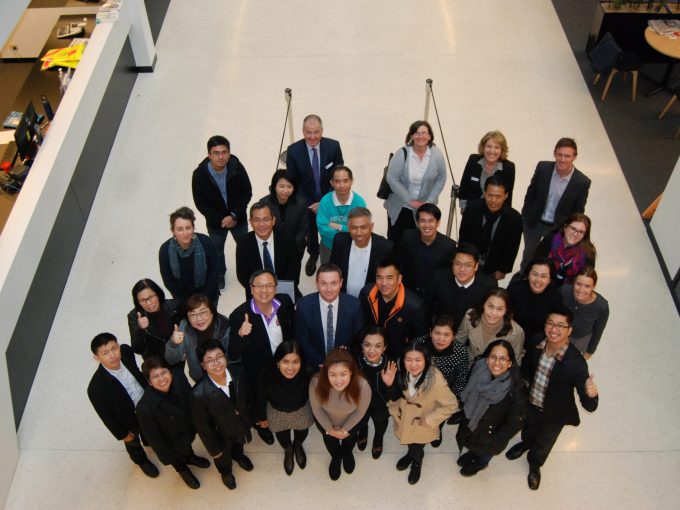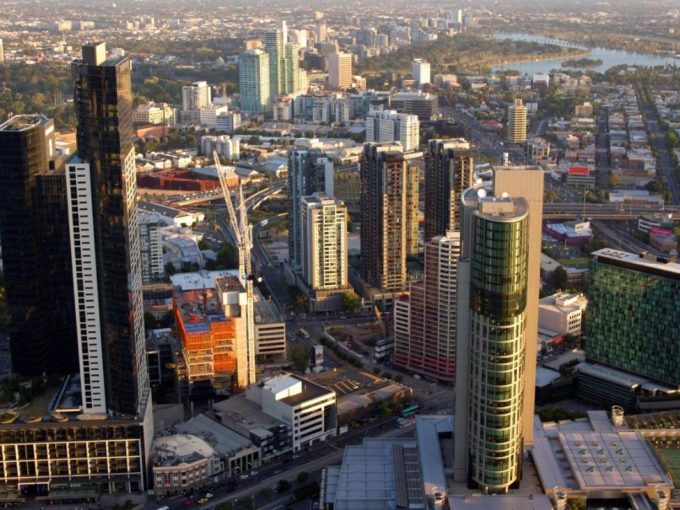A new report investigating the success of second cities overseas outlines a future economic vision for Geelong and second cities across Australia.
The Plan Melbourne Refresh Discussion Paper recommends that Geelong be formally recognised as Victoria’s second city, and that proposals for accelerated growth be included in the plan.
To support wider government policy thinking on second cities and guide the transformation of the Geelong economy, Committee for Geelong (CfG) teamed up with United Nations Global Compact – Cities Programme and the RMIT Centre for Urban Research (CUR), to undertake an international study tour examining the experiences of comparable cities across Europe and the United States have achieved significant change and transformation following the decline of their previous main industries.
The central question guiding the report Winning From Second: What Geelong Can Learn From International Second Cities released by CfG, says lead author Associate Researcher Joana Almeida Correia from the Cities Programme, is how have second cities pursued their economic and social viability following economic change.
“Recent economic change has demonstrated the need for a future strategic direction in the city that enables businesses and the community to transform the city’s economic, environmental and social prospects,” Correia said.
“The places we visited as part of this study tour have seen large major companies leave their cities, yet they have managed to overcome this and transform their economies.
“Meeting with cities’ leader and communities, we found that even though the paths to economic transformation of cities varied, many aspects of successful economic transformations were repeatedly raised across the interviews.”
The study tour team, comprised of Correia, CfG Chief Executive Officer Rebecca Casson and CfG members Kirsten Kilpatrick and Alison McLeod, visited Dundee in Scotland, Cleveland, Richmond and Pittsburgh in the United States and Eindhoven in the Netherlands.
CfG member and Barwon Water representative, Paul Rawson visited Liverpool, Bristol and Sheffield in the United Kingdom.
The team found four recurring themes of value to Geelong’s transformation:
- Priority of industry sectors based on inherent strengths of the city
- Coordination of a unified approach to economic development and planning, both strategically and organisationally
- Branding and differentiate
- Support for innovation, entrepreneurs and existing businesses to scale up
“These recurring themes offer insights that we hope can assist Geelong enhance its social and economic viability,” Correia said.
Cities Programme Chair Michael Nolan said the overarching recommendation of the Winning from Second report is for Geelong to engage in the development of a second city policy with the Victorian and Federal Governments.
“This research highlights that there are significant benefits to be gained from a greater policy focus on these types of cities,” he said.
CUR Director and supervisor of the research project Professor Jago Dodson said the research demonstrates the need for greater policy and planning attention to be given to second cities in Australia.
“International experience demonstrates that second cities can be leaders in economic transformation and while this report focuses on Geelong, we believe the findings and recommendations can be adopted by second cities in Australia.”
CfG Chief Executive Officer Rebecca Casson says the research provides Geelong with significant direction to guide the transformation of the city’s economy, and further drive the future vision and strategic plan.
“Looking at these second cities’ we have learned that, to move forward, Geelong needs to further analyse its strongest industry sectors – such as technology, health and education – and increase its support to facilitate more growth in those areas.”
“Eindhoven in the Netherlands is an interesting example for this – once a working class industrial city and home of light bulb and technology giant Philips, the city now delivers 19 per cent of the Netherlands’ research and development projects.
“Today, Eindhoven is a high-tech hub with a strong focus on nanotechnology, robotics, green technology and precision engineering.”
The Winning from Second research was supported by the Commonwealth Bank as the Lead Research Partner of the project, together with other partners including; the Victorian State Government Department of Environment, Land, Water and Planning (DELWP), the City of Greater Geelong, Transport Accident Commission (TAC), Executive Travel Management, Geelong Port, The Gordon, Lovely Banks Land Owners’ Consortium, Victorian Regional Channels Authority, Tract Consultants and Opteon Property Group.
PhD student Todd Denham from the Centre for Urban Research co-wrote the final report with Correia.
Story: Chanel Bearder





